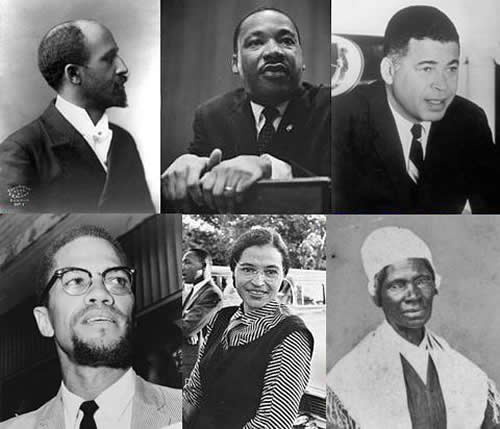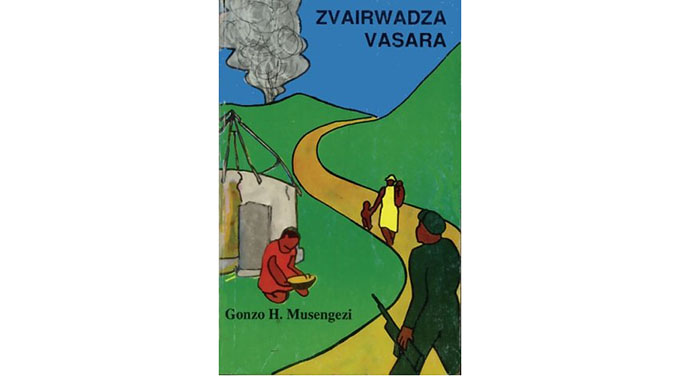‘Revai’ and the burden of widowhood, inheritance
Elliot Ziwira @ The Book Store
ROPAFADZO Mupunga’s “Revai” (2014) published by Zimbabwe Women Writers, which was nominated for the 2014 National Arts Merit Awards (NAMA), is an apt read, as it tackles social issues besetting most African societies. Inheritance, witchcraft, religion and charlatanism are fertile grounds for African artistes, as individuals strive to locate their biographies in societies steeped in cultural ethos. Mupunga’s offering, though, goes a step further than stereotypical intonations as she is able to strike a balance that transcends gender limitations.
Although her characters are drawn from the peasantry, the themes explored cut across a cosmopolitan landscape weighed down by suffering, laziness and misplaced priorities. The universal neurosis and stasis at the centre of the family unit, resonates in the different relationships purveyed in the story, which pits women, not only against men, but against each other. Women in most cases are their own worst foes and the writer is not blind to that, as the portrayal of the female characters in the novel highlights.
The simplicity of the chronological plot used does not rob the novel of the novelty of merging individual psyches for an all encompassing national discourse. The visual, aural, olfactory and tactile images evoked through deliberate use of conventional setting do not only lend credence to the fictional experience depicted, but illuminates the voyeur in Man’s heart which derives thrill from pain and suffering. In his struggle to control his environs in an attempt to tame fate for his selfish aggrandisement, Man exposes his foibles and as a culmination he loses out at a game he purports to be both instigator and champion.
Told through the omniscient and omnipresent third person narrator, “Revai” is a story of Revai, whose hardworking husband, Vengai, dies, leaving her to face her disrespectful stepsons, Kenas and Costa; and raise four minor children, three of which are in primary school, and the last one barely five-years-old.
At the funeral, accusations of witchcraft are carelessly thrown about, with the deceased’s sister, Mai Ratidzai, and brother, Tongai, central to them. Veiled pointers are directed at the protagonist for being the architect of her husband’s death.
Matters come to a head when the stepsons, who are majors, join forces to rob the protagonist and her children of their inheritance; which is not much though, in the eyes of those who have seen the world, but a lifeline in poor neighbourhoods. Vengai’s fortune, the envy of his community and a bone of contention in his family, comprises 10 head of cattle, 10 goats and an equal number in sheep.
It is the distribution of this “wealth” that sets tongues waging, leaves an abattoir of bleeding hearts, breaks a family at the seams and exposes Revai to the glaring eyes of the community.
It is norm in African societies that girl children are not supposed to inherit anything from their fathers as it is believed that they would benefit their husbands’ or future spouses’ families. It is against this backdrop that Revai’s daughters, Yeukai and her two sisters, are counted out of their father’s estate. Tawanda, her only son, and last born, is considered too young to get more than a head and a goat. The three male relatives – Kenas, Tongai and Costa – as is prescribed by patriarchy, get three head of cattle, three goats and three sheep apiece; Mai Ratidzai got the radio and other smaller items; Revai and her daughters are left with nothing.
Mupunga adeptly tackles the issue of inheritance and witchcraft in a society where talk of the existence of the rule of law is taboo, as everything is skewed in favour of the wide mouthed, and the voiceless like Revai are considered insignificant. In the community that the heroine is thrown, the feeble and vulnerable remain gagged as justice becomes gender and familial biased. The headman who is supposed to be the epitome of justice and the voice of the voiceless penalises Revai for having her husband’s estate distributed behind his back; and for this offence she loses the only goat that her son inherited.
She subsequently loses the cow to the same headman as compensation for Yeukai’s exchange of blows with his haughty, lazy and disrespectful daughter, Dzorai, who is married to Revai’s stepson, Costa. With everything that she and her husband toiled for gone, the protagonist refuses to have her spirit dissipated, as she is determined to single-handedly raise her children against the storm.
The writer highlights the destructive nature of superstition as it breeds animosity, and encourages laziness. Revai resolves to till the land regardless of her lacks and her crops become her pride and the envy of many, including Tongai who sees the hand of witchcraft in it all. His decision to consult, Kwedebu, a charlatan, to stop Revai in her tracks exacerbates the central character’s woes. The lightning bolt that is meant to take her life misses, and takes its ire to the fields where it leaves a yawning trench in its wake. Because of her good crop which strikes everyone with awe, her misfortunes are summarised as the work of her displeased goblins.
As prayer-some as she is, Revai seeks solace in the Christian God when Tongai and his ilk place their hopes in charlatans whose bones and incantations are meant to bring harm on others. However, the more she prays, the more her problems seem to mount, as the community is divided between loyalty and belief. When her son Tawanda mysteriously disappears in the veldt in her company as they herd cattle on behalf of a neighbour who helps them with draught power, belief tilted the scales against her.
And when she buys three head of cattle from her dance with destiny at Chiyadzwa, no one could exonerate her from dabbling in witchcraft; and when the bogus witch-hunters who have been in contact with Gondo, the headman “fish” her out as a witch, all and sundry refuses to see beyond the circus. As a result she loses the cattle to the charlatans as compensation for cleansing her.
Pain knows no boundaries, and suffering is humanity’s norm, so it seems, but there is always a supernatural force that comes to the aid of us all, gentle reader, when we least expect it. As an African, Ropofadzo Mupunga is conscious of the multiplicity of religious beliefs that shape the continent; therefore, she is careful not to allow one aspect of the phenomenon to dominate. Christianity and African religion are depicted in the same vein; either as destructive or constructive, depending on one’s take.
Revai’s storms are weathered through her prayers to the Christian God; Tongai is doomed because of his over-reliance on charlatans; Mai Ratidzai is redeemed through Vengai’s visitations in her dreams, and she is given accurate prophecies by Zionist and Apostolic prophets; Dzorai’s dreams of Vengai’s voice demanding his cattle is the harbinger of Gondo’s misfortunes which prompts him to seek solutions from a traditional healer, who tells him that unless he returns the livestock he cunningly got from the deceased’s family his family would be decimated.
Avenging spirits are not diabolical as most euro-centric proponents would want Africans to belief, and the people’s artiste is aware of it, as she allows Vengai to fight his own wars so as to absolve his wife of blame, recover his family’s lost inheritance and punish the hijackers of justice.
Interestingly poetic justice is met through Vengai’s spirit, and all that his family has lost to charlatans and greedy relations is returned, and the perpetrators are incarcerated.
Tawanda, who survives Mujubeki and Tongai’s shenanigans, regains the voice he had lost for years and comes back home, Kenas, Costa and their wives are redeemed, Yeukai becomes a successful medical doctor and buys her mother a house in Borrowdale.
However, although poetic justice is achieved through punishing the heinous ones and rewarding the good, Ropofadzo Mupunga overstretches reality and compromises suspense which is an integral component of artistic prowess. Everything seems to be overtly predictable, which is usually the case with teething, and can be ironed out with experience.
Notwistanding the glitches highlighted, the book remains a powerful voice in the emancipation of women, as fortune always smiles on those persistent enough to overlook their present predicament, and use the stones that are thrown at them to build their fortresses.








Comments